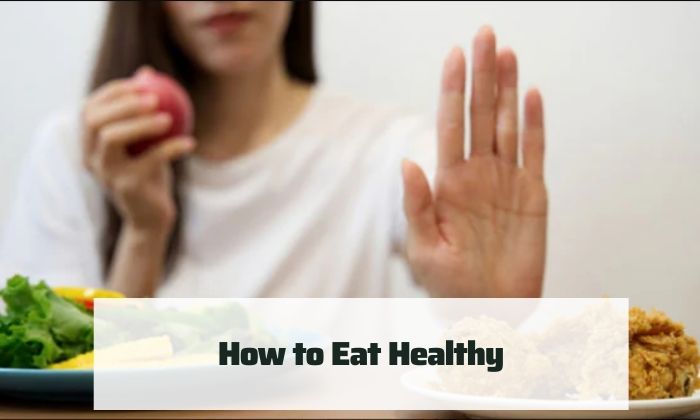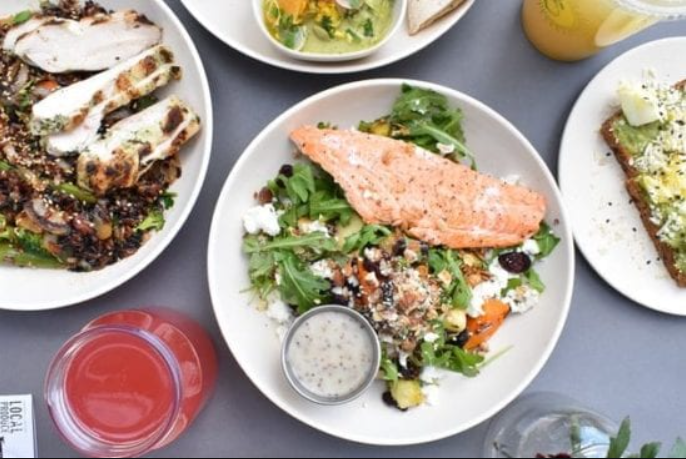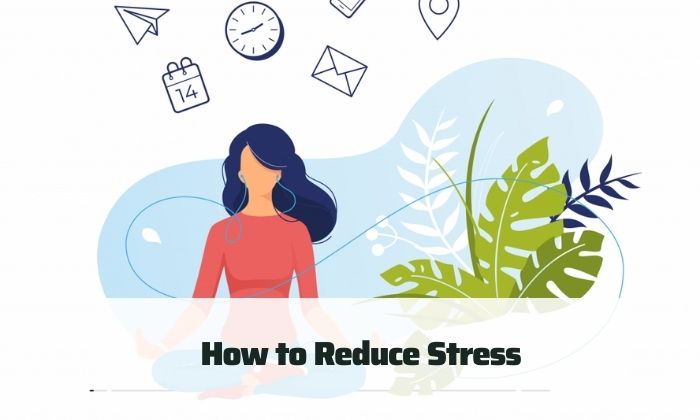How to Eat Healthy – The Best Guide For The Beginners

Eating well is important. Everyone knows they should do it, but few of us do it as consistently as we would like. The goal of this guide is to share practical strategies for eating healthy and to dissect the science behind why we often fail to do so.
Now, I’m not claiming to have a perfect diet, but my research and writing on behavioral psychology and habit formation has helped me develop a few simple strategies for developing and maintaining a healthy eating habit with little effort or thought.
You can jump to a specific section by clicking the links below, or simply scroll down to read everything. You’ll find a complete list of all the articles how to eat healthy.

1. Educate yourself
The first and most important step is to educate yourself on the nutritional value and impact of various foods and beverages — and reading this is part of that. Most of us understand what is and isn’t healthy, but nutrition is more complicated than good vs. bad. There are also many food myths. For example, sushi and granola bars both contain more sugar than many people believe.
You will be able to make simple and easy changes to your diet for healthier outcomes and better work performance if you educate yourself. Eggs on toast, for example, is a better breakfast than jam on toast because it replaces sugar with protein, zinc, iron, vitamin D, and the brain-boosting chemical choline. It’s also a myth that eggs cause high cholesterol.
2. Building a routine
Part of the reason we develop bad habits is that we do not plan and implement a healthy routine, or we simply let our plan be ‘whatever is easiest’ (and this usually means unhealthy). By developing a routine, you will be better prepared for meals and choices that are healthier, whether that is a homemade meal or saying no to cake. And, most importantly, you’re making food choices before you’re hungry.
The key here is simplicity: prepare a simple dish that you can bring to work. This could also mean buying healthy snacks (carrot sticks, nuts, and seeds) on your way to work so you don’t end up buying crisps/potato chips and sweets or candy from the vending machine.
Those of us who travel frequently — especially those who fly — should read Eating Healthy While Traveling for Business.
3. Don’t skip meals
Dr Stella George, Senior Medical Director at Aetna International, says, “When you eat and how frequently you eat are just as important as eating well and getting the right nutrients in your diet.” It’s critical not to skip meals or wait too long between eating healthy snacks because your glucose levels will drop, making it difficult to concentrate and increasing your chances of overeating or eating the wrong things at your next meal.”
Meal skipping has a number of negative consequences:
- Other times of the day, you are more likely to overeat.
- You are more likely to put on weight.
- Mood suffers as a result.
- As blood sugar and energy levels drop, concentration suffers.
Don’t forget to eat breakfast. This increases your risk of weight gain and puts you at risk of atherosclerosis, heart disease, high blood pressure, diabetes, obesity, and high cholesterol. Eating your first meal of the day can help your body burn more calories throughout the day and help control rising cortisol (the primary’stress hormone’) levels in the early morning. Cortisol levels that are too high can make you feel anxious or jittery.
Breakfast suggestions
- Load up on protein at breakfast to jumpstart your metabolism, stay fuller for longer, and avoid snacking.
- Avoid sugary foods because you’ll be craving them all day.
4. Stay hydrated
Workplace dehydration can reduce productivity, cognitive abilities, reaction times, and even morale. As a result, it is critical to stay hydrated, but you should try to do so by drinking water rather than sugary or caffeinated drinks, which can cause dehydration, hyperglycemia, and sleep disruption.
Consumption of alcohol or excessive caffeine dehydrates the body, and energy drinks (including those containing taurine) have been banned in some workplaces due to their high caffeine content, lack of nutritional value, and negative health effects.
After-work drinking can help with team building and morale, but it can have a negative impact on the next day by disrupting sleep and dehydrating you — and no one ever did their best work when they were hungover!
5. Smart lunching
Healthy lunch is not only the most important thing to get right during a busy day, but it is also the most difficult.
A balanced lunch will include protein, sugars, fat, fiber, carbohydrates, and other nutrients.
“A high carb meal, such as pasta, bread, and cereals, releases glucose quickly, giving you a burst of energy followed by a slump, draining our motivation and attention,” explains Dr. Stella. A high-fat meal, on the other hand, provides more sustained energy but requires our digestive system to work harder, lowering oxygen levels in the brain and making us groggy.”
According to one study, the more fruits and vegetables people consumed (up to 7 portions), the happier, more engaged, and creative they were. This is due to the fact that fruits and vegetables contain essential nutrients that promote the production of dopamine, which plays a role in the sensations of curiosity, motivation, and engagement. They also contain antioxidants, which help with memory and mood.
Planning ahead (see Building A Routine, above) and shopping with work lunches in mind is a good way to ensure you eat a healthy lunch. For example, you can go shopping for the ingredients for a large salad that will really fill you up, such as cabbage, peppers, and carrots, in addition to cucumber and lettuce.
Lunch suggestions
- Take some time to eat your lunch.
- Make your lunch at home.
- Find a lunch buddy or form a lunch club.
- Keep food on hand at work (dressing, condiment etc.)
- Eat away from your desk; it’s much easier to overeat when you’re distracted.
- Find healthy eating options near your workplace.
- Use portion control.
- Avoid eating processed/packaged foods.

6. Sensible snacking
While many people try to avoid snacking, grazing on the right foods can help you stay energized throughout the day. Hunger can be a distraction at work, and many of us succumb to the vending machine’s salty, sugary, fatty badness. However, there are healthy snack options that will improve your mood and productivity.
So, what’s a good work snack? Consume nuts and seeds, fruits and vegetables — carrots, peppers, celery, and even green beans make excellent snacks. If hunger is a problem, try some of these high-protein snacks: hard-boiled eggs, beef jerky (buy sugar-free varieties), Greek yoghurt, non-processed cheese, and edamame.
The key, as with many other items on this list, is preparation. To avoid using vending machines, prepare a bag or box of snacks at home.
7. Mindful eating
“What we eat has a direct impact on our energy levels, focus, and ability to concentrate.” It’s difficult to be completely committed to a healthy diet all of the time. We can allow ourselves to relax and enjoy the occasional treat by paying attention to what we eat and when we eat it. Apply the 80/20 rule: make the best choices you can most of the time, and the treats will become just that: a delicious treat, rather than the norm. “Your concentration, energy levels, and mood will all improve,” Dr Stella says.
Focusing on the present moment while calmly acknowledging and accepting your feelings, thoughts, and bodily sensations is what mindfulness entails. Mindful eating entails paying close attention to your food as you purchase, prepare, serve, and consume it. As an example:
- Consider the health value of each item on your shopping list.
- Don’t eat because you’re hungry because you’ll be tempted to eat more than you need.
- Begin with small portions, then wait and eat more if necessary.
- Take pleasure in your food
- Consider the color, texture, aroma, and even the sounds of your food as you prepare and consume it.
- Consume slowly, taking small bites and chewing thoroughly. Take a breather between mouthfuls.
- You are not required to eat everything on your plate.
- Use your right to say no.
- Making conscious decisions about what you put into your body and not sleepwalking into unhealthy eating is part of mindful eating.
- There are no shortcuts, just as there are no shortcuts in exercise. You must put in the effort. And a lot of healthy eating comes down to willpower, which can include saying no. Consider saying no or limiting your intake of cake, office treats, and meeting food like biscuits and pastries.
Benefits of healthy eating at work
Poor nutrition not only has a negative impact on our health, but it can also have a negative impact on our work performance by reducing concentration and energy levels, as well as causing irritability, frustration, and impatience.
It will assist you in understanding good, balanced nutrition and will provide advice on how to optimize your diet at work so that you can benefit from its effects:
- Cognitive function has improved.
- Energy levels in the immune system
- Reduced mental health
- Diabetes and cardiovascular disease are two examples of lifestyle-related diseases.
- Stress
By implementing the strategies and tactics outlined below, you will be on your way to better work performance as well as overall health and well-being.
See more useful article at my website y2kcenter.org




